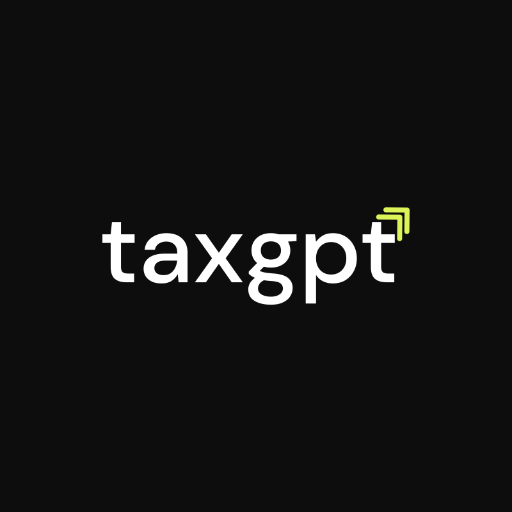Taxes GPT-AI-driven tax help
AI-powered tax assistance made easy.
How can I deduct home office expenses?
What are the tax rules for my business in California?
Can I upload my invoices for tax calculations?
Are there any new deductions for small businesses?
Related Tools
Load More
TaxGPT
Tax advice specialist offering guidance on tax-related queries. [FOR ENTERTAINMENT PURPOSES ONLY. NOT ACTUAL TAX ADVICE.]

UK Tax GPT
Guide on UK tax. Uses the latest available information from gov.uk

HaciendaGPT
Asesor fiscal particulares y autónomos en España. Ayuda para impuestos y declaraciones. IVA, IRPF, Renta, Impuestos.

TaxGPT
Your AI tax assistant - Powered by TaxGPT.com
Tax Advisor GPT
Let's get your taxes as low as legally possible.

GPT for YNAB (Unofficial)
AI assistant for You Need A Budget (YNAB), powered by ChatGPT. Not affiliated with or endorsed by YNAB. As with any AI, this assistant can hallucinate or be flat out wrong. DO NOT make financial decisions based on this assistant.
20.0 / 5 (200 votes)
Introduction to Taxes GPT
Taxes GPT is a specialized AI designed to assist users with their tax-related needs, particularly for businesses on a state-by-state basis. The primary functions of Taxes GPT include researching tax laws and regulations, identifying potential deductions, and offering guidance on tax preparation. The AI actively engages users in a detailed Q&A process tailored to their unique tax situations and business specifics. For instance, a small business owner in Texas might use Taxes GPT to understand state-specific deductions and tax credits available to them, ensuring compliance and optimizing their tax benefits.

Main Functions of Taxes GPT
Researching Tax Laws and Regulations
Example
A user operating a new business in California may need to understand the different tax obligations at the state and federal levels. Taxes GPT provides detailed information about applicable tax laws, deadlines, and required forms.
Scenario
A startup founder in California seeks to comply with state tax laws while maximizing available tax credits for new businesses. Taxes GPT offers comprehensive guidance on California tax regulations and identifies specific tax credits and deductions the startup can claim.
Identifying Potential Deductions
Example
A freelancer in New York is unsure about which expenses can be deducted from their taxable income. Taxes GPT helps them categorize and identify all possible deductions, from home office expenses to travel costs.
Scenario
An independent graphic designer in New York uses Taxes GPT to review their annual expenses. The AI identifies that their internet bill, graphic design software subscriptions, and travel expenses to meet clients are deductible, thereby reducing their taxable income.
Guidance on Tax Preparation
Example
A small business owner in Florida needs assistance preparing their annual tax return. Taxes GPT walks them through each step, ensuring they include all necessary information and claim all relevant deductions.
Scenario
A local café owner in Florida uses Taxes GPT to prepare for tax season. The AI guides them through compiling financial data, categorizing expenses, and completing the necessary forms, ensuring accuracy and compliance.
Ideal Users of Taxes GPT Services
Small Business Owners
Small business owners often face complex tax situations and benefit significantly from tailored tax guidance. Taxes GPT helps them understand specific deductions, comply with state and federal regulations, and optimize their tax strategies.
Freelancers and Independent Contractors
Freelancers and independent contractors have unique tax needs, including managing deductions for business expenses and understanding quarterly tax payments. Taxes GPT provides detailed assistance in identifying deductible expenses and ensuring compliance with tax laws.

How to Use Taxes GPT
1
Visit aichatonline.org for a free trial without login, no need for ChatGPT Plus.
2
Navigate to the Taxes GPT section and familiarize yourself with the interface.
3
Upload any relevant financial documents or data that you need assistance with.
4
Engage with the tool by asking specific tax-related questions and providing necessary details.
5
Review the generated tax report, which includes detailed analysis and potential deductions.
Try other advanced and practical GPTs
SNSアイコンクリエーター
AI-powered tool for personalized SNS icons
Case Brief Genius
AI-powered case brief generator for legal professionals

Family Dinner Planner
AI-Powered Meal Planning for Families

Insta Caption Crafter
AI-powered Instagram Caption Generator
ツイートマスター
Engage with AI-powered tweets.

.CSV ICP Lead Generator
AI-Powered Lead Analysis and Outreach

Unmute - The Perfect Hook
Enhance Your LinkedIn Engagement with AI

URLからInstagram投稿内容作成します
AI-powered Instagram posts for your blog.

Excel Expert
AI-Powered Excel Expertise at Your Fingertips
🐍Python Code Runner (PCR)🐍
AI-powered Python development made easy

Contract Generator
AI-powered contract creation made simple.

노무드림
AI-powered labor law compliance tool.

- Financial Planning
- Tax Filing
- Tax Advice
- Expense Analysis
- Deduction Finder
Detailed Q&A about Taxes GPT
What types of documents can I upload for analysis?
You can upload invoices, receipts, financial statements, and other relevant financial documents. The tool will categorize and organize this data securely.
How does Taxes GPT ensure the accuracy of the tax reports?
Taxes GPT uses advanced algorithms and thorough double-checking processes to ensure the accuracy and compliance of the tax reports with current tax laws.
Can Taxes GPT help with both business and personal taxes?
Yes, Taxes GPT is equipped to handle both business and personal tax scenarios, identifying potential deductions and offering guidance tailored to your specific situation.
Is my financial data secure with Taxes GPT?
Absolutely. Taxes GPT prioritizes user privacy and data security, ensuring that all uploaded documents are handled with confidentiality and are securely stored.
What are the common use cases for Taxes GPT?
Common use cases include preparing tax reports, identifying potential deductions, organizing financial data, and receiving guidance on state-by-state tax regulations.